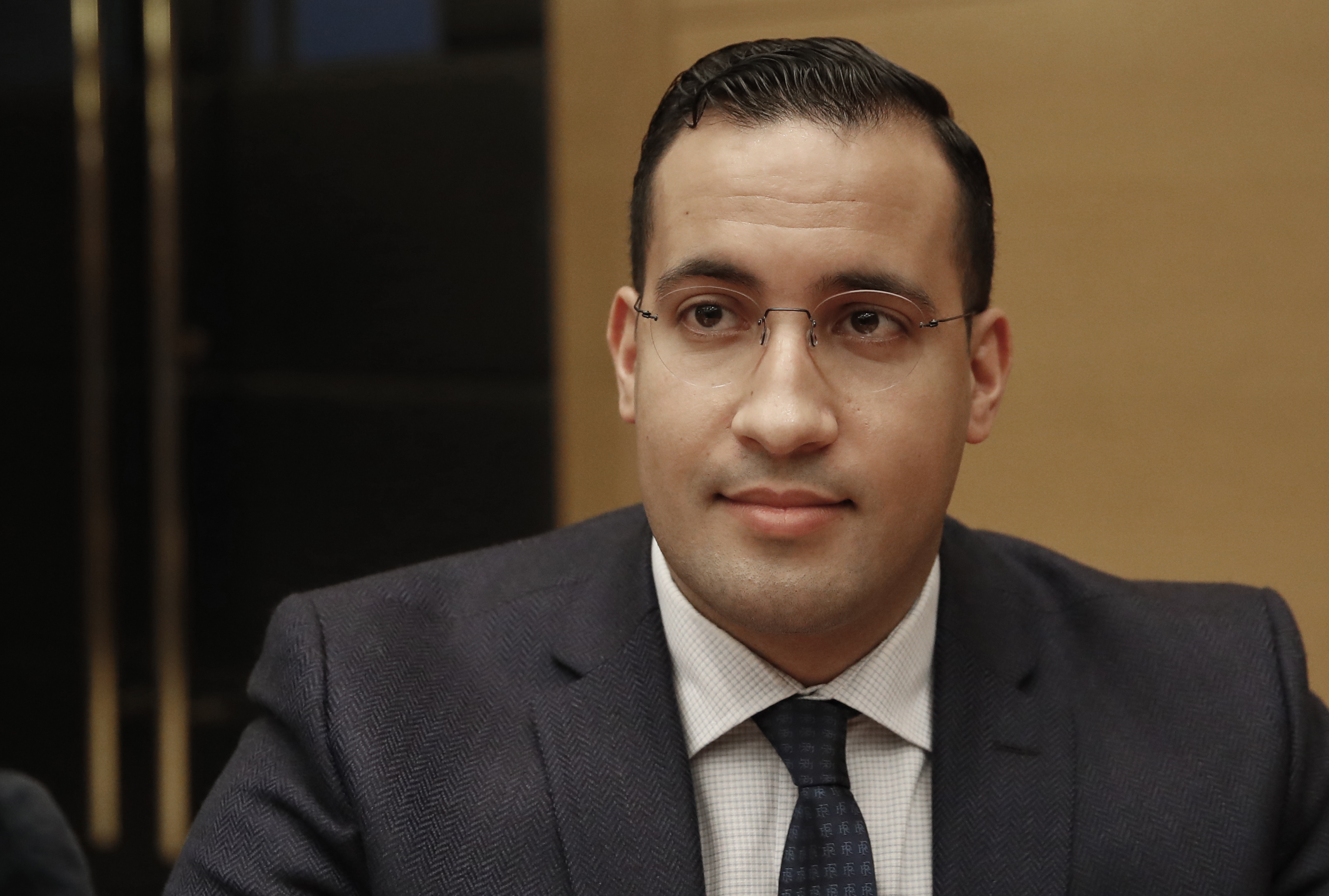
French President Emmanuel Macron’s former security aide, at the heart of a damaging political scandal, told a Senate commission Monday that he turned in his two diplomatic passports after being fired last summer but they were returned to him two months later.
Alexandre Benalla said the passports were returned to him in October “by a salaried person at the Elysee.” He didn’t name the person, saying only that the still-active passports were handed to him in a street, and he used them 23 times — including on a December trip to Chad less than two weeks before Macron visited the west African country to visit French troops. Benalla said he was on a visit with a private company as he tries to find new work after being formally fired in August as a security aide at the French presidential palace for alleged violence against protesters at a May Day protest. He was accompanying police as an observer. It was the second time Benalla appeared before the commission, which is probing what authorities have described as state “disfunction,” surrounding the mysterious role of the one-time aide. Benalla was handed preliminary charges Friday for abusive use of the diplomatic documents. He was charged earlier on several counts linked to his violence — captured on video — at the May protest. As reports emerged about his use of diplomatic passports after being fired, the Senate commission decided to call him back for further testimony. He had told the commission in September that his two diplomatic passports were still in his office at the Elysee. “I reaffirm … I did not lie to you Sept. 19,” Benalla said.
Perjury before the commission can bring up to five years in jail and a huge fine. “It was stupid of me to have used them (the passports) considering the controversy that occurred afterward,” he said, adding later that they merely served to “fast-track” his entry into a country, without skipping security. Why the passports were returned to Benalla is but one of an array of questions surrounding the former aide, who was often seen at Macron’s side on outings, as candidate then as president — though he has denied he was a bodyguard. His apparently privileged position within the inner circle at the presidential palace remains unclear. After the footage of violence emerged, Benalla was given a demotion but not fired.
Asked about media reports alleging he exchanged text messages with Macron until right before Christmas, Benalla said only that he has had no contact with anyone at the presidency or Macron’s party since Dec. 24.
“I have no secrets on anyone. I’m not blackmailing anyone,” Benalla said in introductory remarks, while complaining of a “pseudo Benalla affair” that has amounted to a “public lynching.”
The hearing ended with more confusion than clarity. For one conservative senator on the commission, Marc-Philippe Daubresse, one thing was certain: “We are going to produce a report with severe recommendations because we’re at the highest point of the state (the presidency) and there are dysfunctions at every stage.”q
By ELAINE GANLEY
Associated Press



















